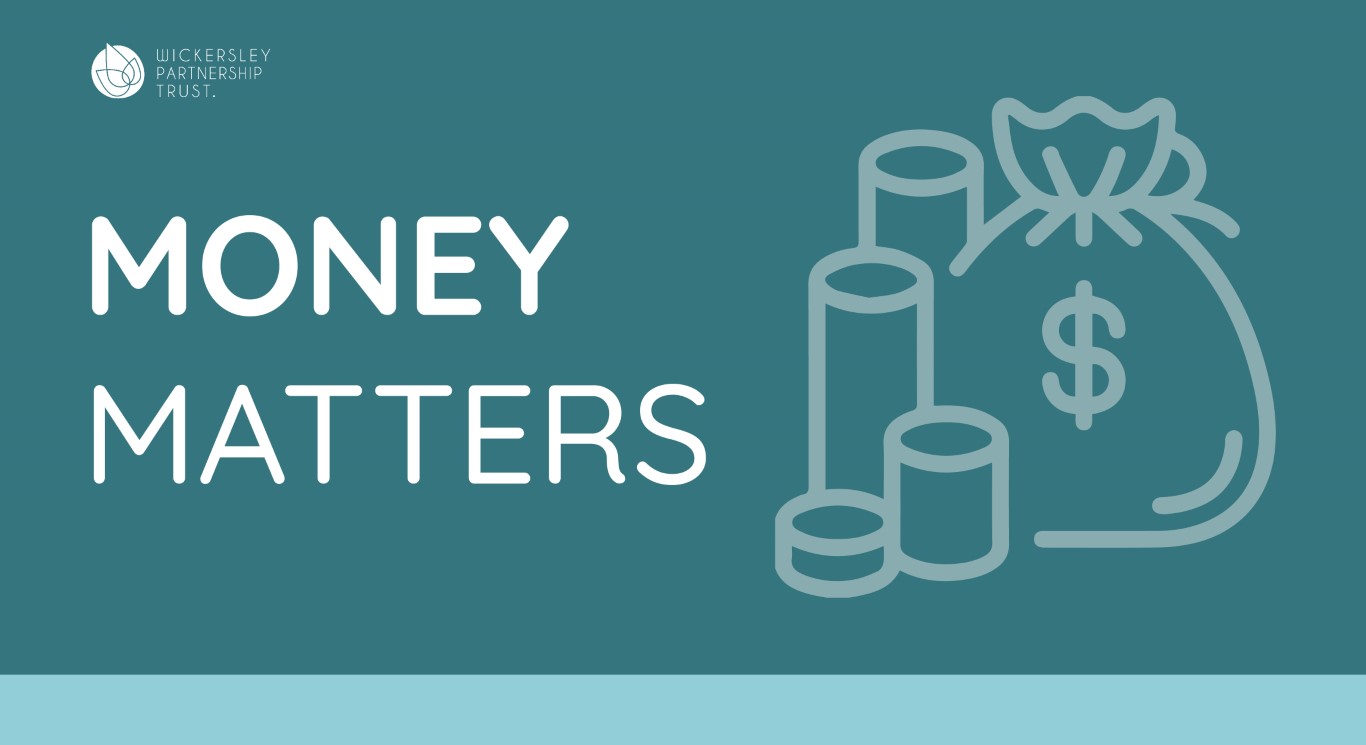Students from across our WPT secondary schools have undertaken their ‘Money Matters’ curriculum this year.
Here’s a roundup of what each year group has been getting up to in these lessons:
Year 7
So far this year, students in Year 7 have studied a range of Money Matters topics including banking, budgeting and the cost of living.
This half term, students will be working on debt. They will be looking at what debt is and appreciate the possible consequences of not managing debt responsibly. Students will go into more detail by exploring how credit can be a useful tool in managing money, identifying behaviour that may lead to debt and knowing who to approach in the event of getting into debt.
Students can continue their learning beyond the classroom by writing a five step plan giving advice about how to avoid getting into debt or creating a poster warning of the dangers of getting into debt.
Year 8
In Year 8, students have studied a range of Money Matters topics including choice, money safety and savings.
This half term, students are working on economies. Students will understand the fundamental features of different types of economic markets and explore how GDP operates as a measure of national prosperity. This will enable students to recognise the important role that money plays in our economic wellbeing and understand how this country’s economy works in relation to the economics of other countries.
Students are also encouraged to appreciate how changes in the national economy can affect personal finances.
Students can continue their learning beyond the classroom by researching a further economic system such as the ‘traditional economy’ and finding out the advantages and disadvantages of such a system.
Year 9
In Year 9, students have studied a range of Money Matters topics including budgeting and taxes.
Recently students have been working on being able to recognise how branding can influence our spending choices. Students spent time in lesson comparing one product against another in terms of its taste, appearance and packaging and making a ‘best value’ judgement. By the end of the lesson, students were able to list some of the factors that influence the way in which our purchasing decisions are made and use that information to make informed choices about products.
Students can extend their learning at home by leading a product analysis on a different product (e.g. two brands of biscuits) and asking family members to participate!
Year 10
In Year 10, students have studied a range of Money Matters topics including how to host a major event, new year’s resolutions and long term planning and borrowing.
This half term, students are looking at sources of financial information. Students will investigate some of the organisations that offer financial advice/information and be able to identify the different between advice and information. Discussion time will be spent on why some sources of information may or may not be trustworthy.
Students can extend their learning at home by making a list of key internet sites which offer advice about money management and attempt to assess their reliability and impartiality.
Students will continue with their Money Matters lessons next year.





